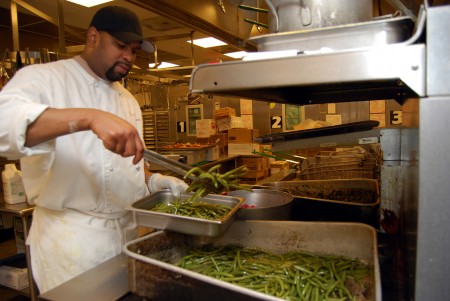- Home
- News
- Features
- Topics
- Labor
- Management
- Opinions/Blogs
- Tools & Resources
14 states boost minimum wage in January; federal contract employees get raise
By David Stephanides – As 2016 begins, the Department of Labor continued its push for a increase by underscoring the progress that has been made while federal lawmakers are still sitting on their hands. Noting that in the absence of a national raise, states and localities have taken action, the DOL’s chief economist, Heidi Shierholz, pointed out in a blog posting that the hourly minimum wage rates in 14 states will go up in January. Legislative action or voter referenda over the past two years prompted that action in a dozen of those states: Alaska, Arkansas, California, Connecticut, Hawaii, Massachusetts, Michigan, Nebraska, New York, Rhode Island, Vermont, and West Virginia. In Colorado and South Dakota minimum wage workers will see their earnings increase because of
automatic cost of living adjustments tied to inflation.
In addition, although they have to wait until summer, workers in Maryland, the District of Columbia, and Minnesota will see increases in 2016 as a result of legislation enacted in the past two years, Shierholz said.
Since 2013, 17 states and the District of Columbia have raised their hourly minimum wage rates, the economist observed. Currently, a total of 29 states, as well as the District of Columbia have set their minimum wage higher than the federal rate of $7.25.
Federal Contractors.
Minimum wage workers on certain federal contracts will also see a boost in January. Shierholz pointed to President Obama’s February 2014 Executive Order 13658, which brought the hourly minimum wage for workers on federal service contracts to $10.10, with annual adjustments to pace inflation. In January, their hourly minimum wage will increase again to $10.15 (tipped employees will get $5.85). Schierholz acknowledged that the increase is small and attributed to the modest inflation over the last year.
Who would benefit from a minimum wage boost?
Saying there is still much work to be done, Schierholz predicted that a federal hourly minimum wage increase to $12 by 2020 would benefit 35 million workers overall. Among those who would from the minimum wage boost:
- nearly 90 percent are adults;
- more than half are working women;
- more than 2 million people would be lifted out of poverty;
- millions would no longer need food assistance; and
- 23 percent of all children would see at least one parent get a raise.
On the other side of the equation, business owners would see reduced turnover costs, higher morale, and more productive workers as the result of a higher minimum wage, according to Shierholz.
“This is an issue that is about the dignity of work and our national values,” the chief economist wrote. “I applaud those public officials and voters across the country who have already taken action to raise their minimum wages. This January, the workers who are seeing a raise are a step closer to getting a fair day’s pay for a fair day’s work.”
Source: Employment Law Daily Newsfeed
List your business in the premium web directory for free This website is listed under Human Resources Directory





